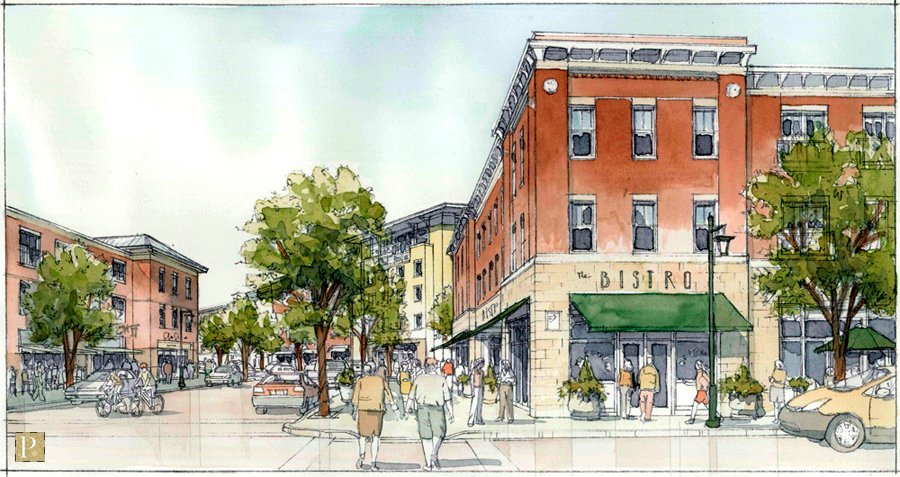Fitchburg, Wisconsin
Fitchburg has the unique advantage of lying between the time-tested urbanity of Madison and the inspiring landscape of the agrarian countryside. Citizens have access to either in a matter of minutes. But what’s missing in its current array of suburban housing and commercial areas is the appeal and practical performance of more compact, walkable neighborhoods. The Fitchburg SmartCode District aims to empower a more complete community with the full range of living, working, and playing environments.

The Fitchburg SmartCode District offers an alternative growth pattern to the prevailing one that isolates uses and decreases mobility. This zoning district is an optional form-based code overlay, which if selected, provides a regulatory tool designed to promote walkable design through a different vision. Rather than focusing on how land is used, the form-based code seeks to influence the look and feel of places by regulating the physical form of development.
People in Fitchburg are an active bunch, who care a lot about cycling, fitness, and the environment. So, they wanted to get a better idea of how using their form-based code might effect the air around them. If all of the development projected to occur in Fitchburg over the next 10 years were to be done under the SmartCode District, there would a reduction of approximately 25,102 metric tons of CO2 every year, 25% less than existing development patterns. This is thanks to a collective savings of 57.6 million miles per year through internal trip capture.
This is equivalent of taking 4,800 cars off the road over the next 10 years. People would be able to walk and bike to 25% more of their daily needs. These estimates account for the needs of new development, but do not calculate the significant benefits of retrofitting existing auto-oriented, single-use developments.
In addition to being the first to adopt a SmartCode in Wisconsin, Fitchburg is the first anywhere to adopt the SmartCode Sprawl Repair Module and the SmartCode Bicycling Module, illustrating methods for redeveloping more auto-centric developments into walkable, bikeable places.
Chris Armstrong of Avante Properties, one of four landowners looking to use SmartCode zoning in the Green Tech Village Nine Springs Neighborhood said, “The SmartCode District provides the best options for time-to-market building and to adjust our product to changing market conditions.”
The code was unanimously adopted in February 2010.

















